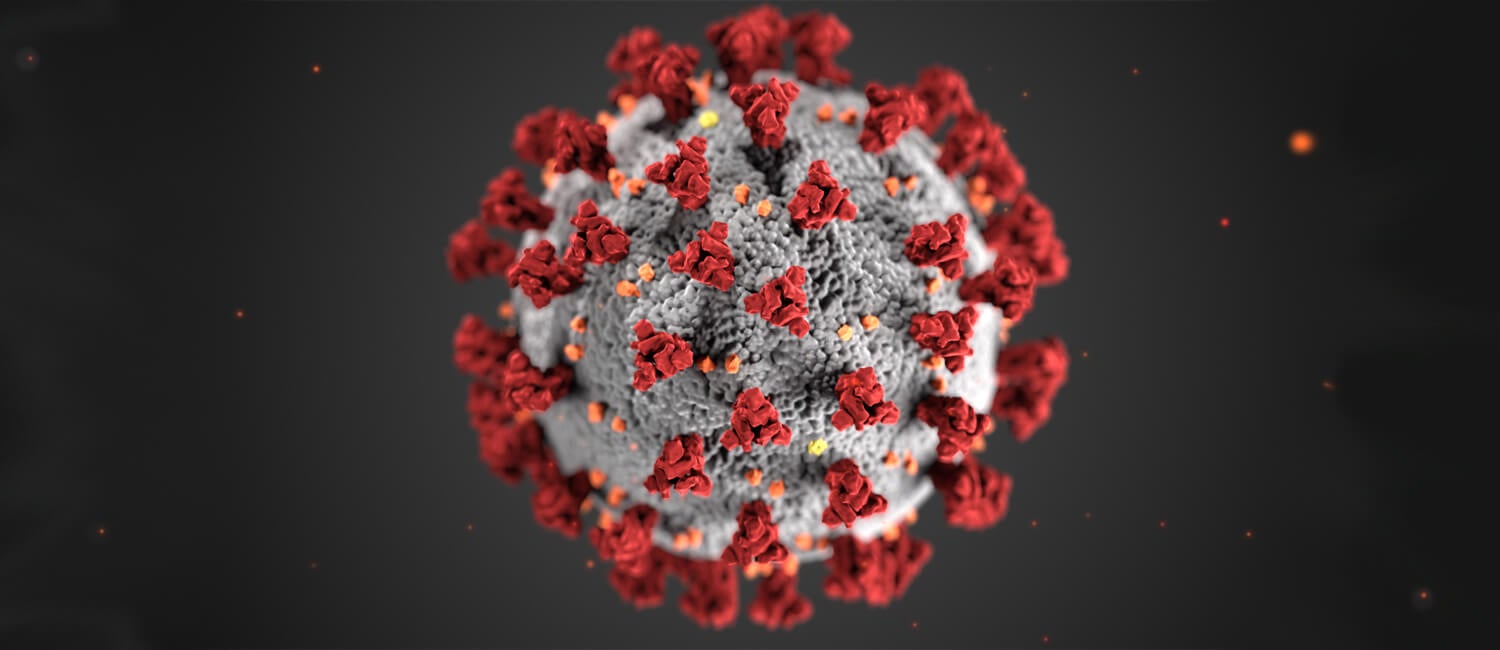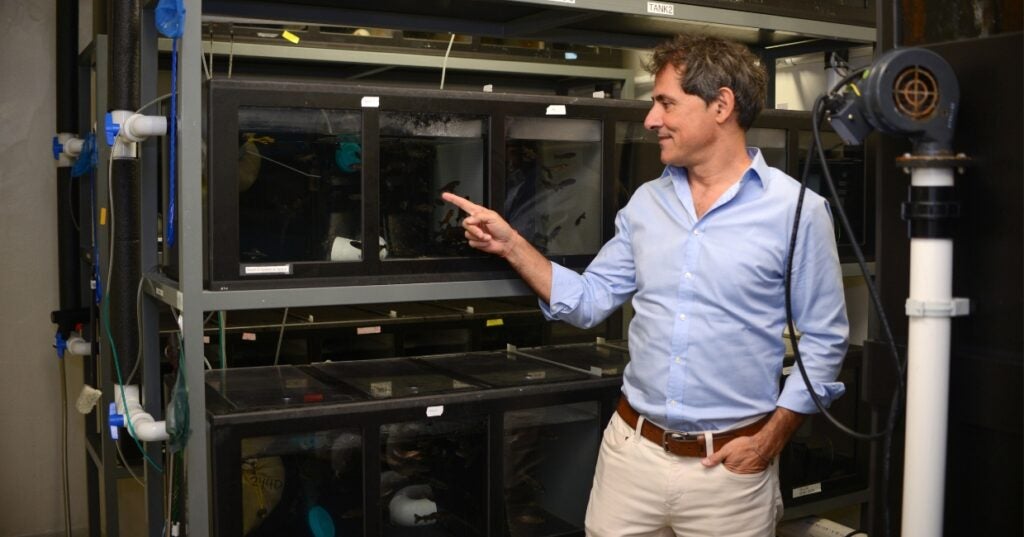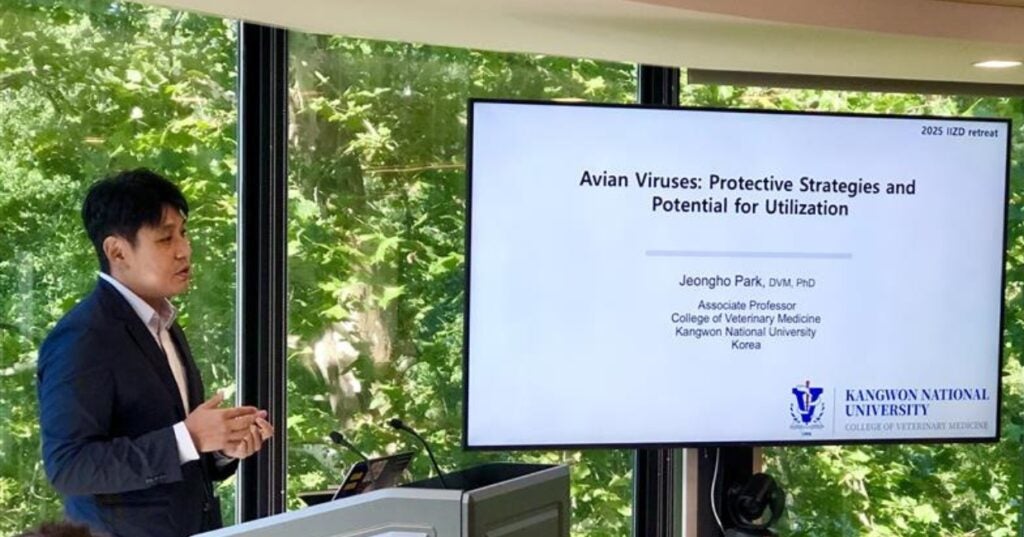The University of Pennsylvania’s School of Veterinary Medicine Announces Infectious and Zoonotic Disease Pilot Awards

Faculty In This Story
The Institute for Infectious and Zoonotic Diseases (IIZD) at the University of Pennsylvania’s School of Veterinary Medicine (Penn Vet) today announced pilot awards for five projects supporting research investigators to overcome challenges associated with zoonotic infectious diseases of wildlife, domestic animals, and humans. The awards bolster Penn Vet’s substantial research and response program to fight emerging, zoonotic, and vector-borne diseases.
The awards are provided through the School of Veterinary Medicine’s Institute for Infectious and Zoonotic Diseases, the University of Pennsylvania Perelman School of Medicine’s Center for Research on Coronaviruses and Other Emerging Pathogens, and the Institute for Translational Medicine and Therapeutics’ Program in Comparative Animal Biology (ITMAT-PICAB).
The 2022 recipients and projects are:
Elizabeth M. Lennon, DVM, PhD, Pamela Cole Assistant Professor of Internal Medicine, School of Veterinary Medicine, and Susan R. Weiss, PhD, Professor of Microbiology, Perelman School of Medicine; Study: Development of an Organoid Model System to Study SARS-CoV-2 Infection in White-Tailed Deer.
Stephen D. Cole, VMD, Assistant Professor of Clinical Microbiology, School of Veterinary Medicine; Study: Evaluation of UV-C Disinfection Technology for Veterinary Settings.
Christoph A. Thaiss, PhD and Norbert Pardi, PhD, both Assistant Professors of Microbiology from the Perelman School of Medicine, and Thomas Schaer, VMD, Director of the Institute for Medical Translation, School of Veterinary Medicine; Study: Metagenomic Control of mRNA Vaccine Efficiency.
Andrew E. Vaughan, PhD, Assistant Professor of Biomedical Sciences, School of Veterinary Medicine; Study: Modeling COVID-19 Comorbidities with Novel Humanized ACE2 Mice.
Eman Anis, DVM, MVSc, PhD, Assistant Professor of Pathobiology, and Roderick “Erick” B. Gagne, PhD, Assistant Professor of Wildlife Disease Ecology, both from the School of Veterinary Medicine, Brendan Kelly, MD, MS, Assistant Professor of Medicine (Division of Infectious Diseases) and Assistant Professor of Epidemiology from the Perelman School of Medicine, and Susan R. Weiss, PhD, and Frederic Bushman, PhD, both Professors of Microbiology from the Perelman School of Medicine; Study: Evaluation of Free Ranging Deer as a Reservoir for SARS-CoV-2.
“Many emerging infectious diseases are viewed as profoundly significant to public health, and the majority of these are zoonotic,” said Christopher Hunter, PhD, the Mindy Halikman Heyer Distinguished Professor of Pathobiology, and Director of the Institute. “Supporting these five scientific investigations not only advances our disease response, but it also solidifies the regional and national infrastructure needed to confront future zoonotic outbreaks.”
About Research at the University of Pennsylvania’s School of Veterinary Medicine (Penn Vet)
Penn Vet’s scientists are key members of the biomedical community at the University, bringing a valuable veterinary component to the table. With 15 research centers and initiatives, and over 30 faculty laboratories, Penn Vet is universally recognized for its work in cancer and regenerative medicine. Penn Vet also has a distinctive niche in infectious disease research, particularly in the areas of immunology and host-pathogen interactions. Leaning into this strength, Penn Vet launched the Institute for Infectious and Zoonotic Diseases in October 2021 to bolster the University’s capacity to develop diagnostics, treatments, and vaccines for diseases that can be passed from animals to humans.
Related News

Behind the Breakthroughs: J. Oriol Sunyer
J. Oriol Sunyer explores how studying the evolution of the immune system reveals surprising connections between fish and human immunity, and what these discoveries could mean for the development of…

Penn Vet’s Institute for Infectious and Zoonotic Diseases Hosts Second Annual Research Retreat
The University of Pennsylvania (Penn) School of Veterinary Medicine’s (Penn Vet) Institute for Infectious and Zoonotic Diseases (IIZD) hosted its annual Faculty Research Retreat on September 3 at the Brandywine…

A New Study from Penn Vet Reveals an Unsung Immune Defender as a Key Guardian of Gut Health and Metabolism
A pioneering new study published in Nature Microbiology, led by Oriol Sunyer, PhD, and a team of researchers at Penn Vet and the University of New Mexico, have uncovered a…
About Penn Vet
Ranked among the top ten veterinary schools worldwide, the University of Pennsylvania School of Veterinary Medicine (Penn Vet) is a global leader in veterinary education, research, and clinical care. Founded in 1884, Penn Vet is the first veterinary school developed in association with a medical school. The school is a proud member of the One Health initiative, linking human, animal, and environmental health.
Penn Vet serves a diverse population of animals at its two campuses, which include extensive diagnostic and research laboratories. Ryan Hospital in Philadelphia provides care for dogs, cats, and other domestic/companion animals, handling more than 30,000 patient visits a year. New Bolton Center, Penn Vet’s large-animal hospital on nearly 700 acres in rural Kennett Square, PA, cares for horses and livestock/farm animals. The hospital handles more than 6,300 patient visits a year, while our Field Services have gone out on more than 5,500 farm service calls, treating some 22,400 patients at local farms. In addition, New Bolton Center’s campus includes a swine center, working dairy, and poultry unit that provide valuable research for the agriculture industry.





